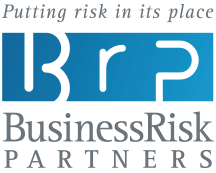After a few years of declining frequency, employment practices liability (EPL) complaints against employers have returned to pre-pandemic levels. Three categories of complaints are at all-time highs:
- Religious accommodations complaints have risen more than 654%
- Reasonable accommodations under the Americans with Disabilities Act (ADA) have increased more than 15.3%
- Retaliation for seeking a reasonable accommodation complaints are up 41.5%
Overall, total ADA complaints are up more than 9.4%. Retail agents should understand what’s driving the trend, sharing best practices to help clients manage risk and presenting the most favorable submission to EPL insurance underwriters.
Frequency drivers
The ADA protects people with disabilities, defined as a physical or mental impairment that substantially limits one or more major life activities. An employer has an obligation under the law to provide a “reasonable accommodation” to the known limitations of an otherwise qualified individual with a disability, as well as to accommodate “sincerely held” religious beliefs.
An employee’s request for accommodation under the law must be “reasonable” and not create an “undue hardship” for the employer, but the bar for organizations to clear in claiming hardship can be high (cost alone is rarely allowed as a valid reason to deny an accommodation request), helping drive increased claims frequency. And as more progressive states grant additional accommodation privileges to employees, public awareness of rights and remedies available under law has increased. Even healthcare practitioners are more willing to fill out such ADA/accommodation forms that favor workers.
Digging deeper into the complaint data reveals that religious accommodation requests are up five-fold from pre-pandemic levels, caused primarily by employees seeking exemptions from vaccine mandates. Anxiety-related complaints are on the rise as well—up from 5.3% in 2010 to 12.3% in 2022. And with a rise in accommodation requests, there is a related spike in retaliation complaints (alleging employer actions against employees who seek disability accommodation).
While many of the above items contribute to claims frequency, we are more concerned about the rise in severity of claims, driven by social inflation and aberration verdicts (plaintiff awards of more than $10M). As costs have risen across the board, it has become more difficult for attorneys to accurately forecast liability and advise carriers and employers accordingly when claims are made.
The bottom line is that this combination of frequency and severity highlights the need for employers to focus on best practices for EPL mitigation in their overall risk management strategy.
Best practices
Legal and risk management issues aside, there are strong business motivations for employers to make every attempt to accommodate employee requests. First, many accommodations, such as granting additional breaks or providing the ability to be seated at a workstation, can be implemented with little expense. In fact, a Department of Labor study found that nearly half of accommodations for disabled workers have no cost to employers. A willingness to make accommodations can also improve workplace morale, help retain valuable employees and expand company diversity by enabling the hiring of more staff with disabilities.
Best practices retailers can share with clients include:
Review the employee handbook. Adopt a clear written policy around disability accommodation, including how employees can make requests, which demonstrates an employee-friendly mindset on the part of the employer. Also review work expectations in the handbook and more importantly, job descriptions, focusing on defining “essential functions” so it can be objectively determined what may be eliminated from a job to fulfill requests and what cannot. There should be a focus on defining requirements in terms of stamina (such as, “ability to work long hours”) and not just physical requirements (i.e., “ability to lift 50 pounds”).
Keep accommodation requests with Human Resources. A manager or supervisor doesn’t need to know, and shouldn’t know, specifics of an employee’s physical or mental impairment. Limit the amount of confidential information in supervisors’ hands, particularly since many supervisors aren’t trained to engage in accommodation discussions and may inappropriately deny or grant a request. Instead, train supervisory staff in how to recognize signs of employee distress, identify a request for accommodation and forward that request to appropriately trained HR staff. Consider retaining counsel to review accommodation requests as well.
Don’t overlook employees’ mental health. Employees increasingly expect their employer to help manage their mental health. In a 2022 survey by the American Psychological Association, 81% of participants said that how an employer supports mental health will be a determining factor when looking for future work. Best practices include extending health care coverage to mental health and substance abuse treatment, and offering employee assistance programs (EAP) for mental health. Deciding whether a reported mental condition substantially limits one or more major life activities and meets the definition of a disability under the ADA should also involve interactive discussions with the healthcare provider.
Work with employees and their health care providers to reach accommodation solutions. Don’t simply dismiss a request that is not “reasonable” on its face (i.e., “Remove all stress-inducing responsibilities”). Instead, work with the employee to answer questions such as, “What tasks can’t you perform?” and “What specific accommodation would you like us to consider?” On the other hand, be cautious in quickly eliminating an “essential function” from a particular employee’s duties to meet a request, as it may be harder to argue later that the same task is essential for another employee.
Document, document, document. Failure to document the reasons an accommodation request is denied could lead to a “no defense” situation. Be sure to document what duties the employee cannot perform and what accommodations were suggested, made, or denied, and why.
About the author:
- Seth B. Brickman, CPCU, RPLU, Managing Director of Business Risk Partners



